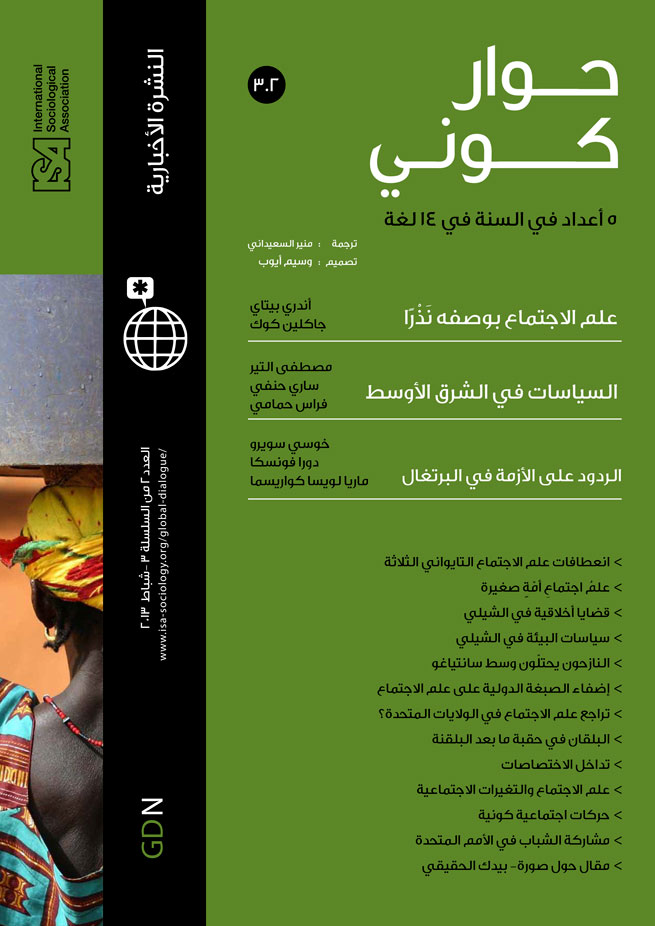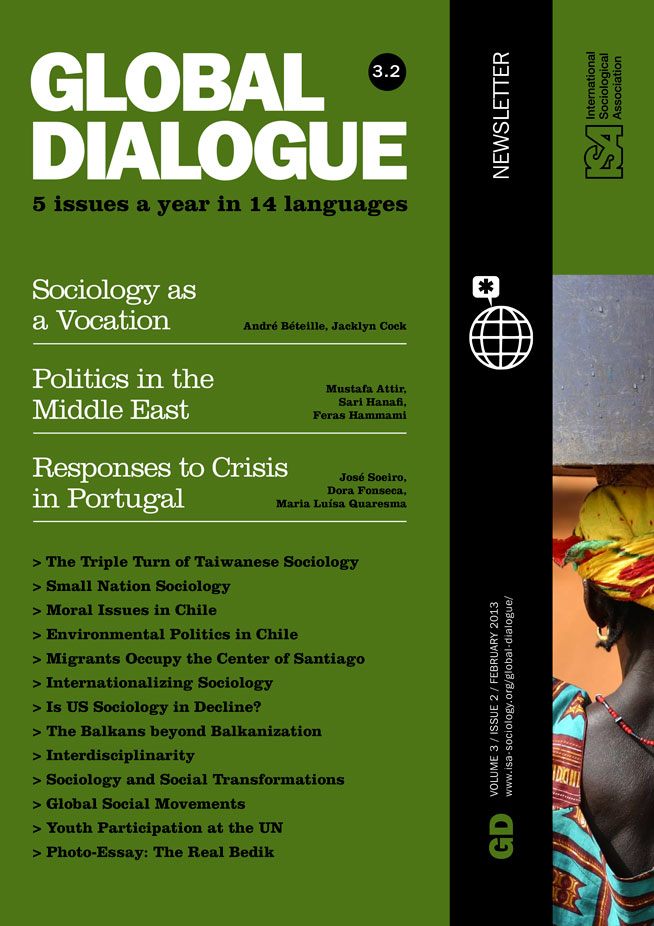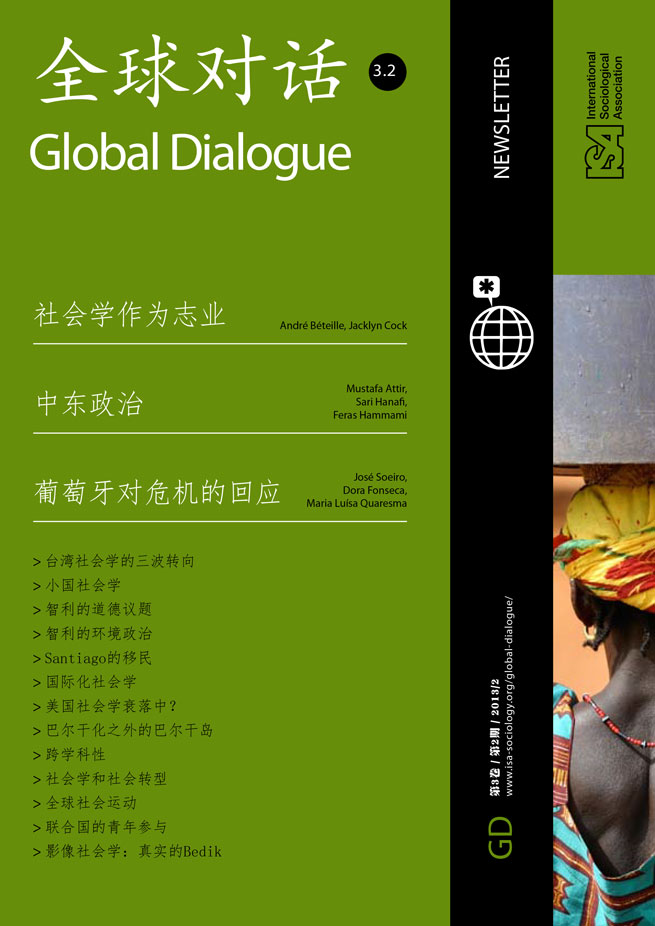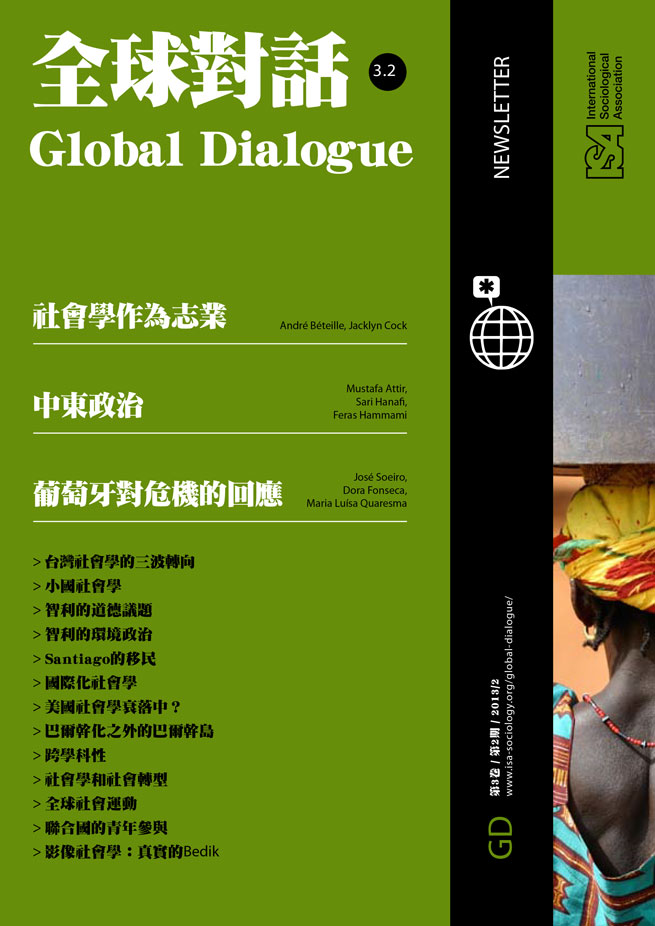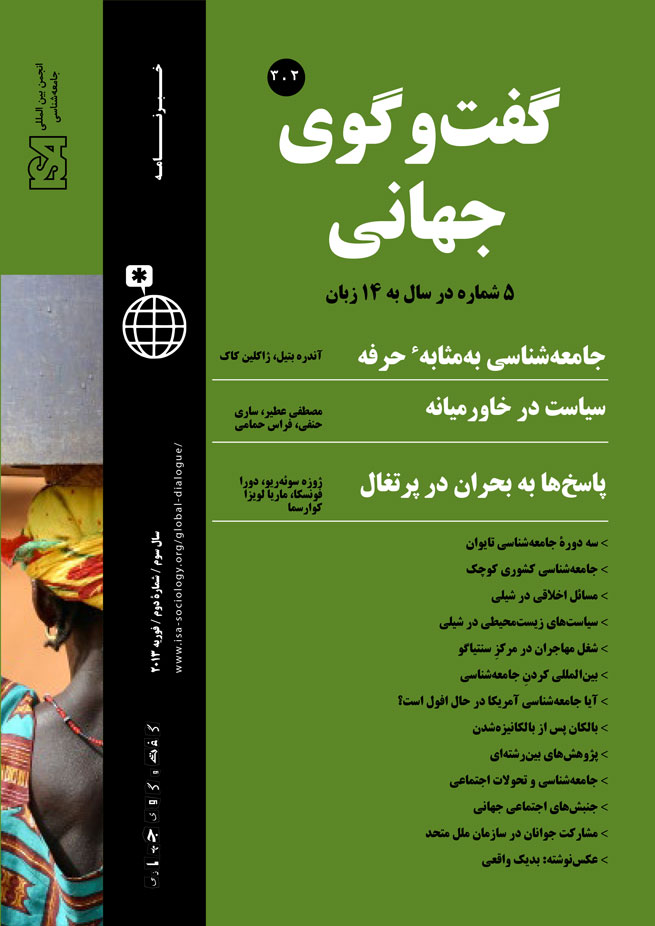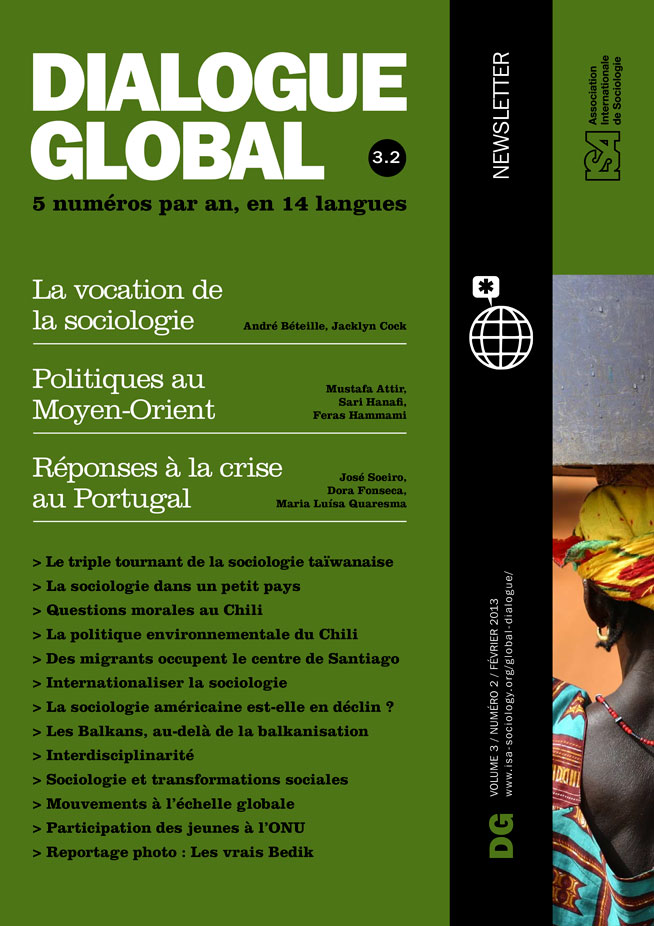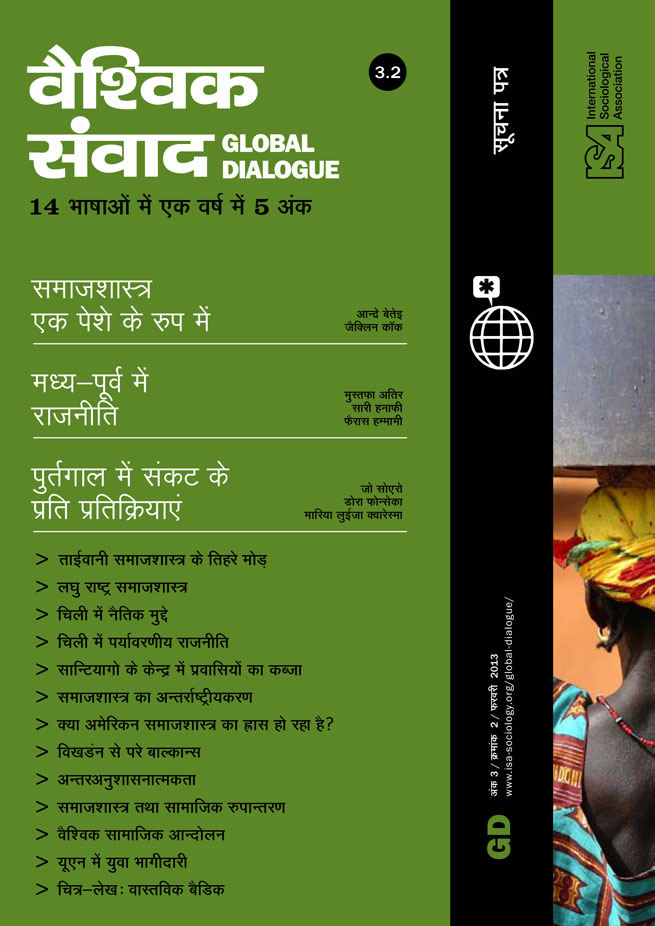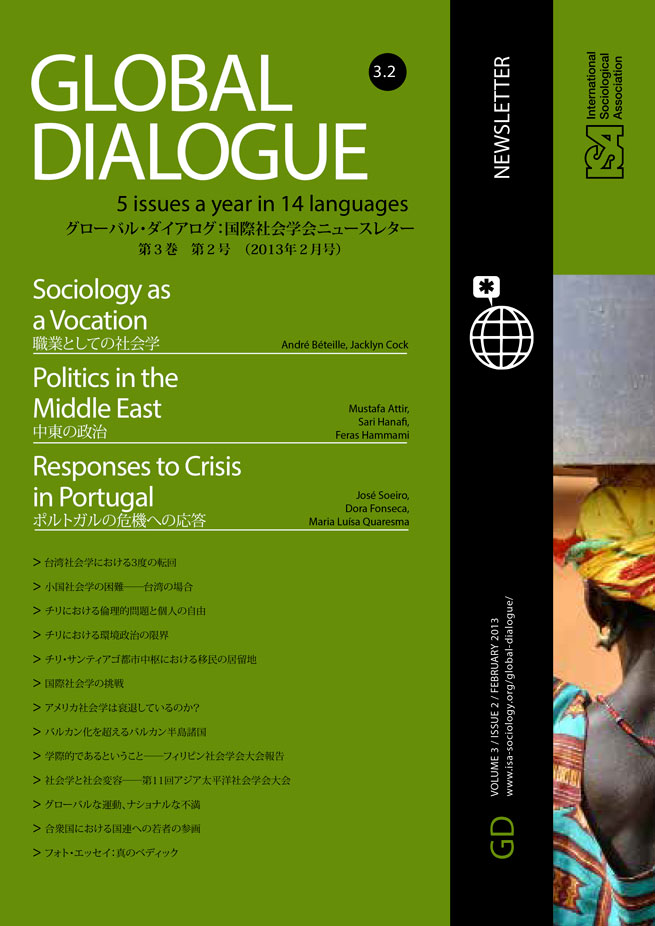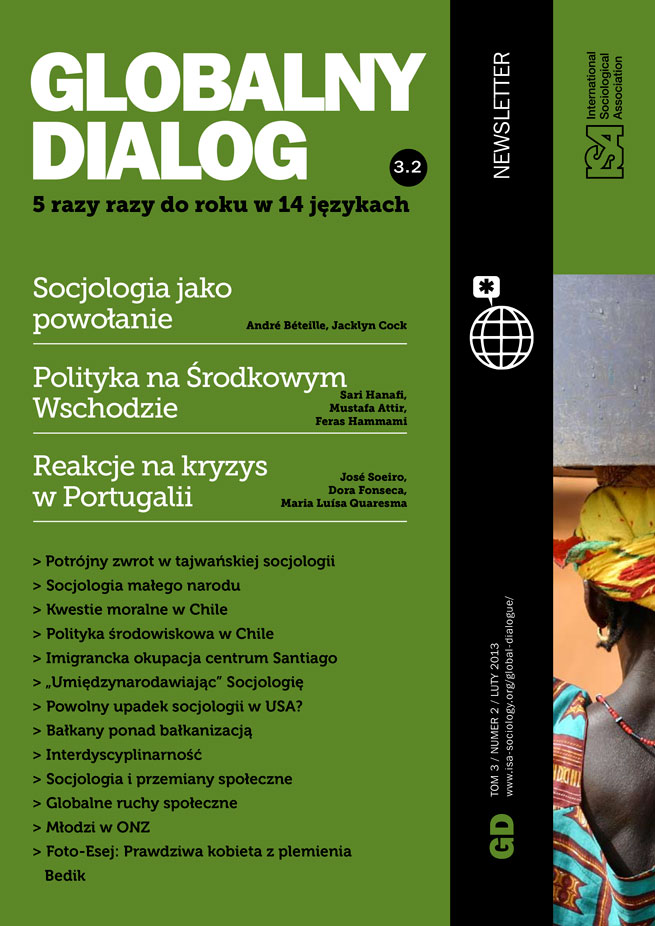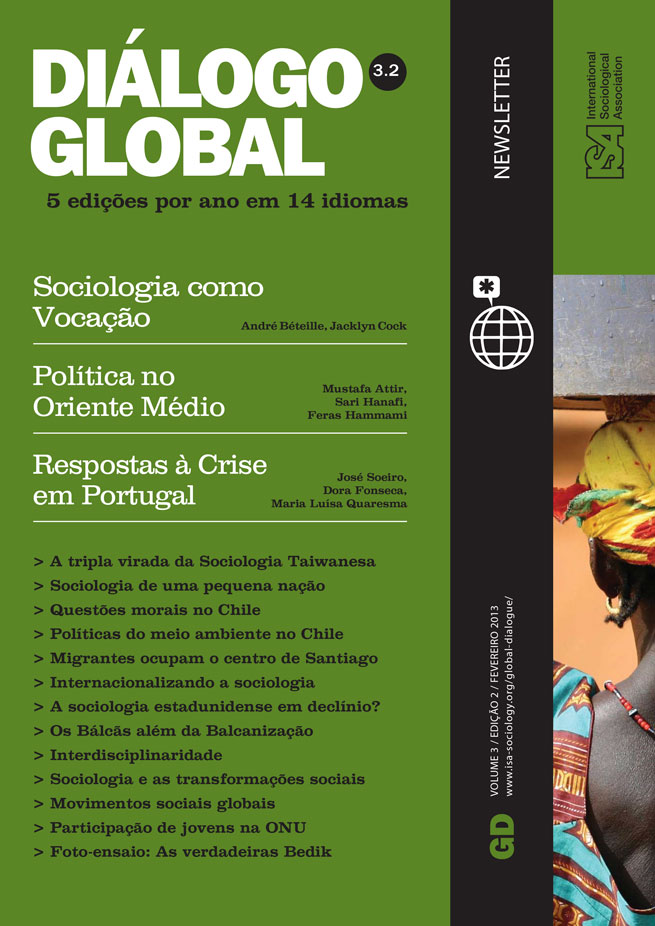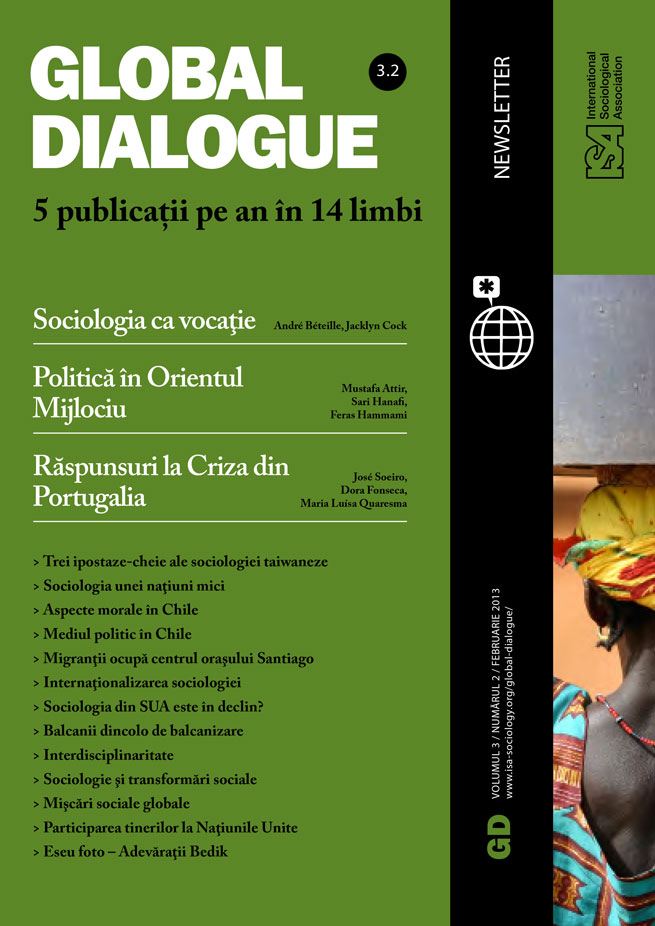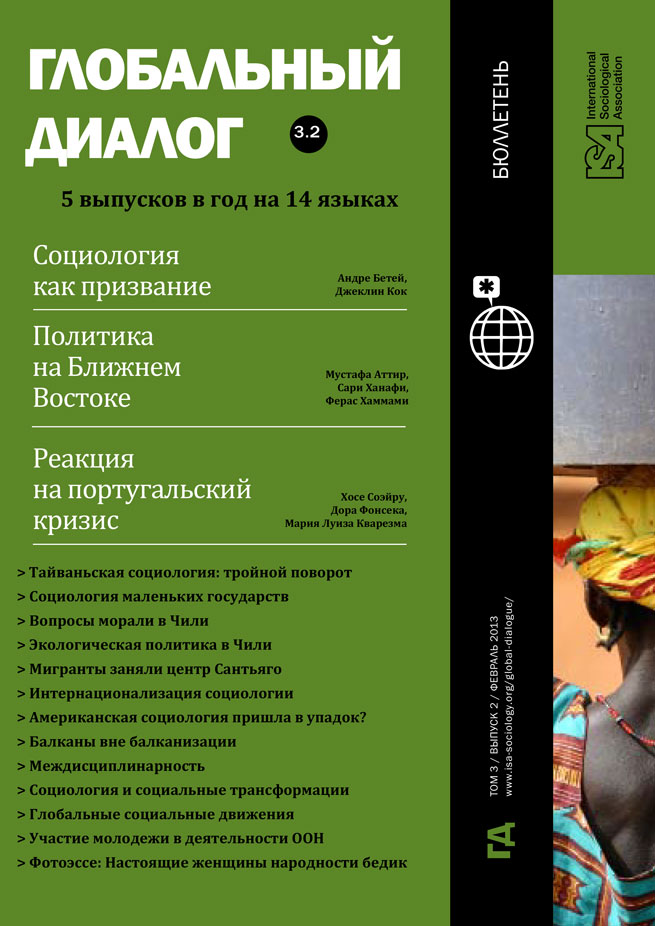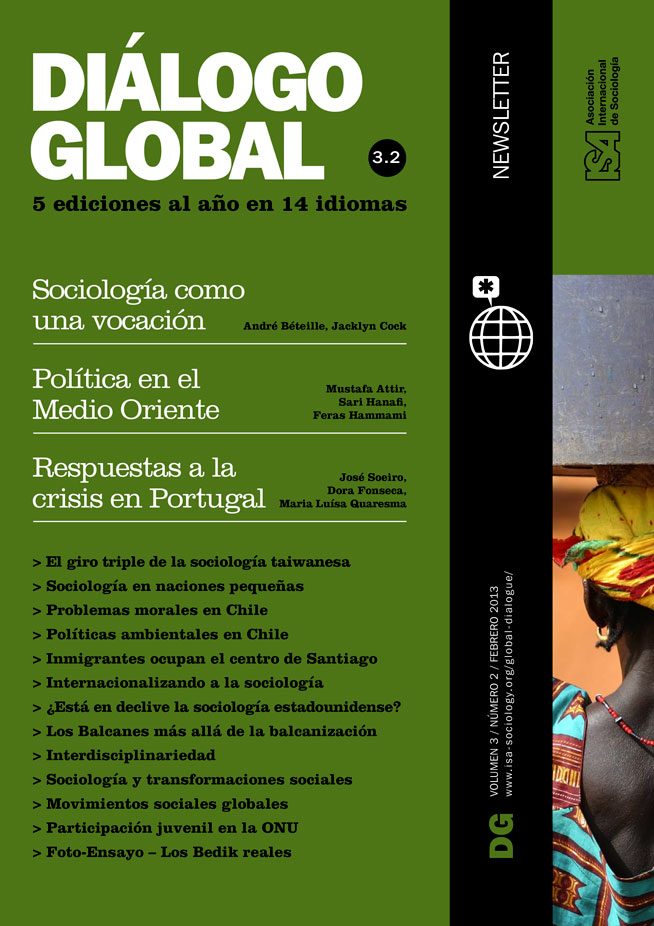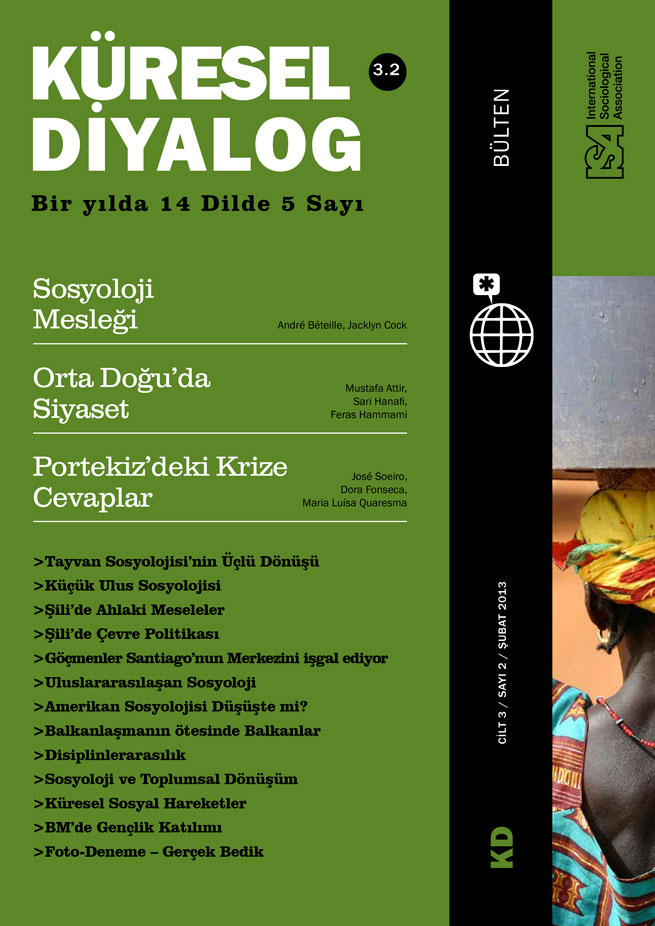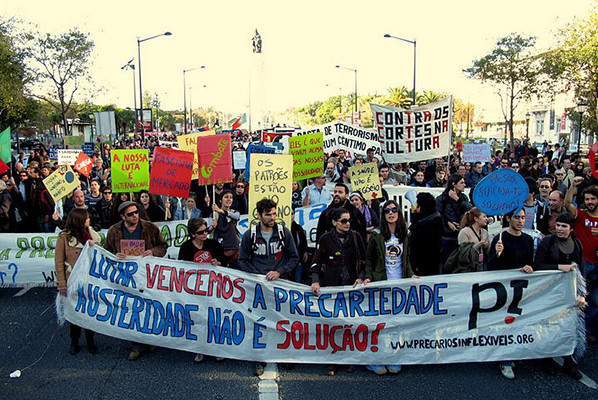Read more about Responses to Crisis in Portugal
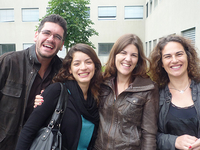
Sociology in Quicksand: Report from the VII Portuguese Sociological Congress
by Maria Luísa Quaresma
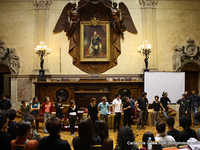
Theater of the Oppressed – A Form of Public Sociology?
by José Soeiro
February 15, 2013
The growing crisis in the Euro zone has fostered numerous reactions from both governments and civil society. For its part, civil society has demonstrated an astonishing capacity to generate new collective actors whose actions are directed at the negative consequences of globalization and neoliberal politics. The last few years have seen a cycle of contention in which democracy as such is questioned, calling attention to closely related issues, in particular the precariousness of labor. The dismantling of the welfare state and the reconstitution of its goals have become common concerns that are fostering the emergence of new collective actors and the transformation of existing ones.
The “inflexible precarious”
The “Inflexible Precarious” or in Portuguese “Precários Inflexíveis” (PI) is one such actor. The movement first appeared in the capital city, Lisbon, in 2007, with the goal of continuing the mobilization work begun with the successful May Day parade. Creating the collective actor “Inflexible Precarious” was a way of filling up the void that existed in social movements, namely the discussion of and focus on labor precarity and its social effects. PI grew out of a small collective called Ferve that mobilized against the misuse of the “independent work” status. Ferve stands for fartos d’estes recibos verdes. It can be translated as “fed up with these green receipts,” where “green receipts” refers to the “independent work” status applied to workers who don’t have a formal relation of subordination with an employer. Legally, these workers are their own bosses and thus assume responsibility for their own social security and other benefits, but, in truth, they are wage earners subordinated to their employer without access to social benefits to which they should be entitled. PI built on Ferve by focusing not just on “green receipts” but on a variety of forms of labor precarity.
The PI’s creation and development follow what Sidney Tarrow has defined as the main processes of social movements: first, mounting collective challenges; second, drawing on social networks, common purposes, and cultural frameworks; and, third, building solidarity through connective structures and collective identities to sustain collective action. The mounting of a common claim has been particularly visible in this case: accomplished by condemning labor precarity in the face of prevailing efforts to present fragile contractual relations as freeing and less rigid and, thus, more in line with individualistic life projects and professional careers. PI follows the tendencies of autonomous organizations that are so different from conventional political parties and trade unions.
PI presents the same characteristics generally attributed to new social movements: strong internal democracy; diffused leaderships; flexibility; high degree of informality; heterogeneity of interests; strong reliance on the tools of cyberactivism; creativeness and innovation in public actions; reticular, segmented and multi-faceted structure; limited interest in negotiating with antagonists; solidarity as an objective; and the quest for participation and direct action. In the case of PI, one feature played a central role from the beginning, namely the strong reliance on tools of cyberactivism. The blog http://www.precariosinfl exiveis.org/ first public manifestation of PI’s existence. It was launched online right after its creation and the first post was the “Precarious Manifesto,” in which the activists define themselves as “being precarious in their jobs and life.” They denounced their precarity, which pervades numerous sectors of the economy (especially the public sector administered by the State), as well as their “invisibility” in political discourse. They declared their intention to “reinvent struggle,” thus suggesting that traditional methods – used by trade unions – are no longer adequate to post-modern society. They claim to be “precarious but inflexible,” announcing their determination to oppose the strong tendencies of labor precarization and proletarianization.
The initial actions were mainly directed at publicizing and condemning unjust and illegal situations that embroiled precarious workers who, by definition, enjoy weaker forms of social protection due to their more flexible work contracts. They have difficulty participating in workers’ traditional collective organizations such as trade unions. This is not just a matter of the incapacity of the labor movement to deal with new forms of the labor process, but with the movement’s growing prejudice against and mistrust of formal organizations and institutional politics.
One of the main objectives is the construction of a new identity: that of the “precarious worker.” This is a necessary condition for effective mobilization against the deregulation of labor relations. Therefore, throughout PI’s existence, the central objective has been to foster awareness and raise consciousness among those working in jobs with lesser rights or even no rights at all. By mobilizing new meanings connected with the destructive effects of labor precarity, the PI (in alliance with other similar national and international collective actors) has created a new field of dispute and conflict. They initially launched a number of actions of an expressive character, but which have now evolved towards higher levels of instrumentalization and formalization so that PI is now a formal association.
The Iron Law of Oligarchy?
Nowadays, the “inflexible precarious” are experiencing a new phase in their “life cycle.” As an association with national scope, PI is now undergoing formalization and legalization. This shift from an informal to a more formal organization is considered a logical step and a sine qua non for the recognition of their legitimacy as an organization with representative powers. Armed with legal status it moves into the electoral arena with hopes of speaking on behalf of its constituency in an institutionalized dialogue with other organizations and formal powers.
Despite the new possibilities created by a formal association, there is concern that the iron law of oligarchy will take effect and endanger its revolutionary character as the PI focuses more on keeping its structure intact rather than pursuing its primary goals. The passage from spontaneous protest to organization has led to the emergence of a bureaucratic structure that transforms PI’s objectives and blunts its initial antagonistic thrust. But, according to some authors, such as Alberto Melucci, bureaucratization is not an inevitable and irreversible outcome, and above all it does not necessarily accompany the modification of the radical aims of the organization. These alternative possibilities will be assessed in the next months with the reopening of the “political season.” New austerity plans for the Euro Zone countries are expected, as well as corresponding reactions from radical political movements which reject the status quo. Only then will we see the real effects of the increasing formalization of this remarkable organization.
For the time being the “inflexible precarious” have been successful in containing oligarchical tendencies, as attested by the role it played in the mobilizations of September 15, 2012 (when hundreds of thousands of people ventured onto the streets, called forth by informal networks, protesting against austerity) or in the protests against the approval of the 2013 state budget (on October 31, 2012, organized together with the CGTP – the biggest trade union federation in Portugal), or even by the effort displayed in mobilizing for the general strike called by trade unions, which took place on November 14, 2012.
Dora Fonseca, University of Coimbra, Portugal
This issue is not available yet in this language.
Request to be notified when the issue is available in your language.
If you prefer, you can access previous issues available in your language:
